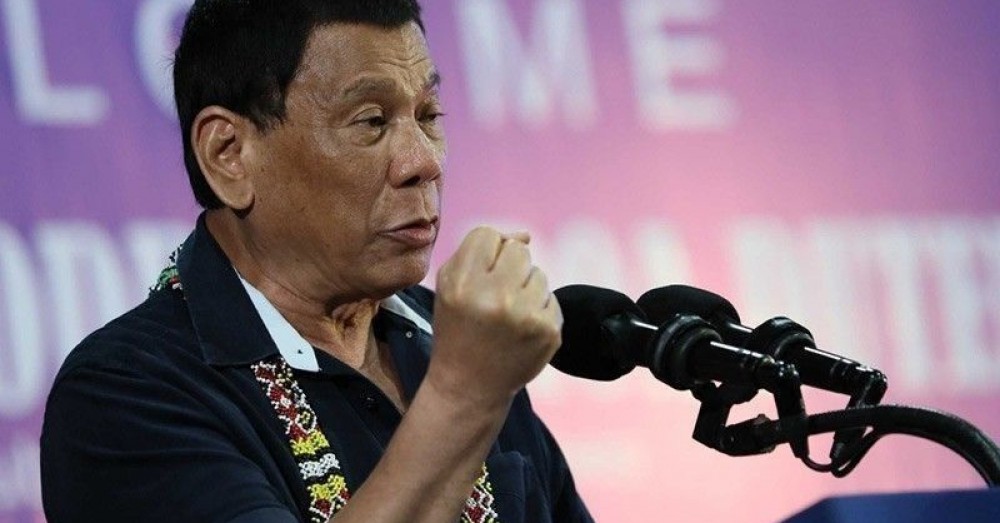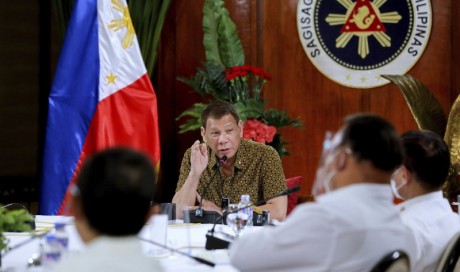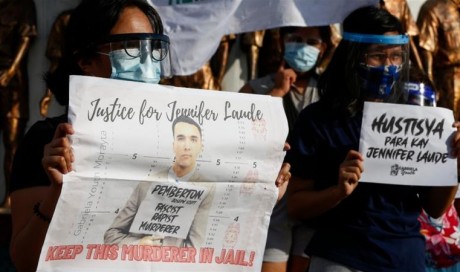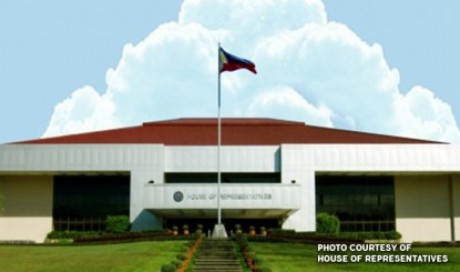Few hours after legislators transmitted the anti-terrorism bill, Malacañang said the controversial measure is now on President Duterte’s desk, and the countdown to the bill’s probable enactment has begun.
In a text message, presidential spokesperson Harry Roque replied “yes” when asked if the Palace has received the enrolled copy of the anti-terrorism bill which Senate President Tito Sotto said early Tuesday was sent to Malacañang.
Duterte’s receipt of the measure started the clock for the 30-day leeway the president has to approve or veto the bill under the Constitution. An inaction from Duterte during the period would still force the bill to lapse into law.
That means the president has until July 9 to decide whether to sign the bill or not, a measure he certified as urgent and was passed by his allies at the House of Representatives last week in the face of mounting opposition. Duterte is currently at his hometown in Davao, where he is expected to stay until at least Thursday for a meeting with the interagency task force for emerging infectious diseases on the ongoing health crisis.
The contentious measure, pending before Congress since last year, sidelined headlines on the ongoing pandemic last week after what critics said was a railroaded passage of the bill that seeks to amend the Human Security Act of 2007. The HSA itself was equally embroiled into controversy when it was nearing passage at the time.
As it is, Duterte was instrumental to the accelerated deliberations on the bill he certified as urgent, allowing his allies at the House of Representatives to dispense of its passage on second and third readings in just two days. At least 20 lawmakers have since withdrawn their support or co-authorship of the bill, but the Congress leadership appeared to have shrugged them off as the measure still found its way to the Chief Executive.
That said, the bill is all but certain to become a law. Last year, Duterte certified a measure prohibiting labor contractualization in the country, a priority legislation and his campaign promise, only to veto the bill on the 11th hour, following pressure from businessmen and his economic managers.
Rising opposition
What makes the anti-terrorism bill dangerous, critics said, was the measure’s removal of liabilities against wrongful prosecution present in current laws. Advocates of the bill, meanwhile, said the removal was necessary since the P500,000 penalty per day against wrongful arrests has made current anti-terrorism legislation ineffective.
Among other provisions, human rights groups, lawyers, students, businessmen, celebrities, and members of the academe, among others, also fear that the broad definition of “terrorism” in the latest amendments makes the measure prone to abuse by authorities.
Activists who protested against the measure last week were arrested despite holding the rally at the University of the Philippines-Cebu, an area which police are restricted to enter by virtue of the 1989 Abueva-Ramos Agreement.
Some characterized the arrests, and the discovery of numerous Facebook accounts pretending to be the activists over the weekend, as prelude to violations that the anti-terrorism bill would help proliferate. The National Bureau of Investigation on Monday dismissed the impostor accounts as a mere “glitch,” despite the absence of confirmation from Facebook itself.
Roque earlier said the bill would be reviewed by Duterte for possible unconstitutional provisions. The justice department said on Monday that a "cursory review" of the bill showed it protects dissent
Share This Post















